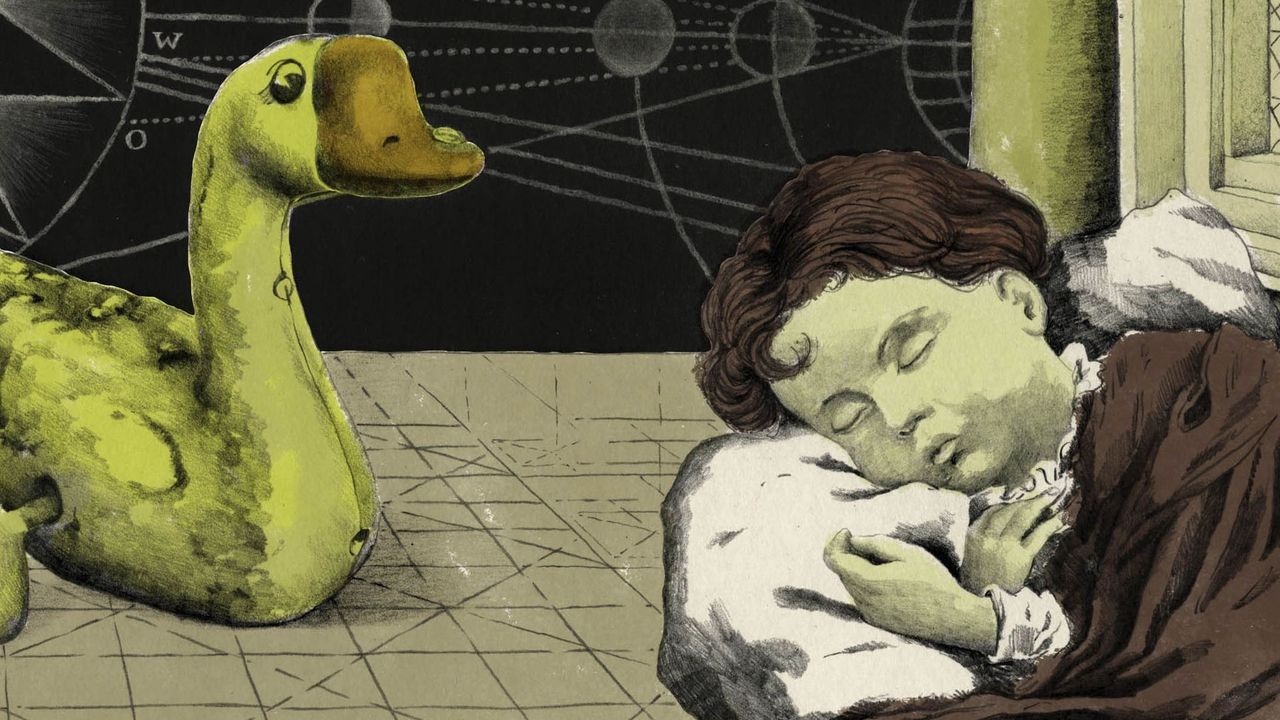Dreams can be hard to remember because of brain activity shifts during sleep. The transition from sleep to wakefulness disrupts memory consolidation.
Many people struggle to remember their dreams upon waking. This common issue often stems from the brain’s natural processes during sleep. The brain prioritizes different functions at various sleep stages, especially during REM (Rapid Eye Movement) sleep when most dreaming occurs.
The shift from deep sleep to wakefulness can interfere with memory retention. Distractions upon waking, such as alarms or immediate activities, can further impede dream recall. Improving dream recall involves techniques like maintaining a dream journal, practicing mindfulness, and ensuring consistent sleep patterns. Understanding these factors can help enhance the ability to remember dreams.
The Enigma Of Forgotten Dreams
Dreams are a fascinating part of our sleep. Yet, many of us wake up without any memory of them. Why do dreams slip away so quickly? Let’s delve into the science behind this mystery.
The Science Of Dreaming
Dreams occur during the REM (Rapid Eye Movement) sleep phase. During REM, our brain is very active. This phase is important for memory and learning. The brain processes emotions and experiences from the day.
While dreaming, the brain creates vivid stories. These stories can be strange or familiar. Yet, despite the brain’s activity, we often forget these dreams. The reasons behind this are complex but fascinating.
Why Dreams Fade Quickly
There are a few reasons why dreams fade. First, the brain might not store dream memories well. Dreams are often illogical and fragmented. The brain might see them as less important than waking memories.
Second, the transition from REM to waking can erase dreams. The brain shifts focus to the waking world. This shift can make dream memories disappear.
| Reason | Description |
|---|---|
| Brain Storage | Dreams may not be stored well as memories. |
| REM Transition | Waking up from REM can erase dream memories. |

Credit: www.bbc.com
Stages Of Sleep Explained
Understanding the stages of sleep is key to knowing why dreams fade. Our sleep is divided into two main categories: REM sleep and non-REM sleep. Each stage plays a different role in our sleep cycle.
Rem Sleep: The Dream Stage
REM sleep stands for Rapid Eye Movement sleep. This stage is when we dream the most. During REM sleep, our brain activity is high. It is almost like being awake. Our eyes move quickly under our eyelids. This stage happens about 90 minutes after we fall asleep. REM sleep is important for learning and memory. We go through several REM cycles each night. The longest REM periods happen in the early morning.
Non-rem Sleep And Its Phases
Non-REM sleep has three phases, each deeper than the last.
- Phase 1: This is the lightest sleep stage. It is the transition from wakefulness to sleep. You can be easily awakened during this phase.
- Phase 2: This is deeper sleep. Your body temperature drops and heart rate slows. You spend most of your sleep time in this phase.
- Phase 3: This is the deepest sleep stage. It is also called slow-wave sleep. This phase is crucial for physical recovery and growth.
Each night, we cycle through these stages multiple times. The balance of these stages affects how well we remember dreams. Most dreams occur in REM sleep, but we often wake up from non-REM sleep. This makes it harder to recall dreams.
Factors Influencing Dream Recall
Understanding why you can’t remember your dreams can be puzzling. Several factors can influence dream recall. These include sleep disorders, medications, substances, stress, and mental health. Let’s explore these factors in detail.
Sleep Disorders
Sleep disorders can affect your ability to recall dreams. Conditions like insomnia and sleep apnea disrupt sleep patterns. This disruption often leads to fragmented sleep. The fragmented sleep makes it hard to remember dreams.
Insomnia often results in less time spent in REM sleep. REM sleep is the stage where most dreams occur. Reduced REM sleep means fewer dreams to remember.
Sleep Apnea causes frequent awakenings during the night. These interruptions can hinder the dream recall process.
Medications And Substances
Some medications and substances can impact dream recall. Certain drugs alter brain chemistry. This change can affect how well you remember dreams.
- Antidepressants
- Sleeping pills
- Alcohol
- Caffeine
Antidepressants can suppress REM sleep, reducing dream frequency and recall. Sleeping pills may lead to a deeper sleep, making it harder to remember dreams. Alcohol can disrupt the sleep cycle, impacting dream recall. Caffeine can affect the ability to fall asleep, reducing dream time.
Stress And Mental Health
Stress and mental health play a significant role in dream recall. High stress levels can affect sleep quality. Poor sleep quality often leads to fewer remembered dreams.
Anxiety can lead to restless sleep. Restless sleep makes it difficult to recall dreams. Depression can also affect sleep patterns. Irregular sleep patterns often result in poor dream recall.
Maintaining good mental health is key to better dream recall. Techniques like meditation and relaxation can help improve sleep quality. Improved sleep quality often leads to better dream recall.

Credit: www.wikihow.com
The Role Of Brain Chemistry
Understanding why you can’t remember your dreams involves looking at brain chemistry. Your brain uses various chemicals to regulate sleep and dreams. These chemicals play a role in how well you recall your dreams.
Neurotransmitters At Play
Neurotransmitters are brain chemicals that send signals between neurons. They influence your sleep and dream patterns. Two important neurotransmitters related to dreams are serotonin and norepinephrine. During the REM (Rapid Eye Movement) sleep phase, levels of these neurotransmitters drop. This drop is essential for dreaming but can affect dream recall.
- Serotonin: Affects mood and sleep quality.
- Norepinephrine: Influences alertness and memory.
Low levels during REM sleep make dream memories harder to keep. Your brain is not in a state to store these memories well.
Hormonal Influences
Hormones also play a significant role in dream recall. Cortisol is a hormone that affects your stress and sleep cycles. Cortisol levels peak in the early morning, just before you wake up. This surge can interfere with dream recall by shifting your brain’s focus.
Another hormone, melatonin, regulates your sleep-wake cycle. High melatonin levels help you fall asleep but can affect how deeply you sleep. Deep sleep phases can make it harder to remember dreams because your brain is more focused on rest.
| Hormone | Function |
|---|---|
| Cortisol | Peaks in the morning, affects alertness. |
| Melatonin | Regulates sleep-wake cycles. |
Balancing these hormones can improve your dream recall. Practicing good sleep hygiene helps regulate these levels naturally.
Psychological Theories Behind Dreaming
Why do we dream? This question has puzzled humans for ages. Various psychological theories offer insights into the purpose of dreaming. Understanding these theories can help explain why you might not remember your dreams.
Freud’s Take On Dreams
Sigmund Freud believed dreams reveal our hidden desires. He theorized that our dreams are a gateway to our unconscious mind. In dreams, we express thoughts and desires we suppress while awake.
Freud divided dreams into two parts: manifest content and latent content. Manifest content is the actual storyline of the dream. Latent content is the hidden psychological meaning. For example, dreaming about flying might symbolize a desire for freedom.
Freud suggested that forgetting dreams is a defense mechanism. Our mind protects us from disturbing thoughts by making us forget.
Contemporary Views On Dreams
Modern psychologists have different views on why we dream. Some believe dreams help us process emotions. Others think dreams aid in problem-solving and memory consolidation.
According to the Activation-Synthesis Theory, dreams are our brain’s way of making sense of random neural activity. Our brain tries to create a story from these random signals.
Another theory is the Continual-Activation Theory. It suggests dreams help keep our brain ready for sudden changes. This readiness helps us respond to new information quickly.
Forgetting dreams might occur because our brain prioritizes waking memories. Dreams might not be stored in the same way as waking experiences.
| Theory | Explanation |
|---|---|
| Freud’s Theory | Dreams reveal hidden desires and thoughts. |
| Activation-Synthesis Theory | Dreams are our brain’s interpretation of random neural activity. |
| Continual-Activation Theory | Dreams help our brain stay ready for sudden changes. |

Credit: medium.com
Improving Dream Recall
Many people struggle with remembering their dreams. Improving dream recall can be achieved through several methods. Here, we explore two effective techniques: keeping a dream journal and adopting proper sleep hygiene practices.
Keeping A Dream Journal
One of the best ways to improve dream recall is by keeping a dream journal. Place a notebook and pen beside your bed. Write down any dream details immediately upon waking. This habit strengthens your memory and makes dream recall easier over time.
Try to note emotions, colors, and any specific events or characters. Even if you remember only fragments, jot them down. Over time, this practice helps in recognizing patterns and themes in your dreams.
Sleep Hygiene Practices
Good sleep hygiene is crucial for improving dream recall. Maintain a consistent sleep schedule. Go to bed and wake up at the same time every day. This regularity supports better sleep quality and dream recall.
Limit screen time before bed. The blue light from screens can disrupt your sleep cycle. Opt for relaxing activities like reading a book or taking a warm bath instead.
Ensure your sleep environment is comfortable and dark. A peaceful setting promotes deeper sleep, which can enhance dream recall. Avoid caffeine and heavy meals before bedtime as they can interfere with sleep quality.
By focusing on these practices, you can improve your ability to remember dreams.
Cultural And Historical Perspectives On Dreams
Dreams have fascinated humans for centuries. Different cultures and historical periods have unique views on dreams. These perspectives shape how people understand their dreams and why they remember or forget them.
Dream Interpretation Across Cultures
Many cultures have unique ways of interpreting dreams. In ancient Egypt, dreams were seen as messages from the gods. Priests would interpret these messages for guidance.
In China, dreams were thought to be a way to connect with the spirit world. The ancient Chinese believed that the soul leaves the body during sleep and travels to other realms.
Native American tribes also placed great importance on dreams. They used them for healing and decision-making. Dream catchers were created to protect against bad dreams.
Historical Beliefs About Dreams
Throughout history, people have had various beliefs about dreams. Ancient Greeks saw dreams as omens or prophecies. They thought gods communicated through dreams.
In the Middle Ages, dreams were often seen as divine messages. People believed dreams contained hidden meanings and moral lessons.
During the Renaissance, interest in dreams grew. Scholars began to study and analyze dreams scientifically. This period marked the beginning of modern dream research.
The Future Of Dream Research
Dream research is evolving at a rapid pace. Scientists are exploring new ways to understand why we dream and why we forget our dreams. The future holds exciting possibilities in this field. Let’s look at some key areas of development.
Technological Advances
Recent technological advances are revolutionizing dream research. Brain imaging techniques like fMRI and EEG are being used to study brain activity during sleep. These tools help us see which areas of the brain are active while dreaming.
Wearable technology is also making a significant impact. Smartwatches and sleep trackers can monitor sleep patterns. These devices can gather data on how often we dream and when we are most likely to remember our dreams.
Virtual reality (VR) is another exciting tool. VR can simulate dream-like environments, helping researchers study how we process dreams. This technology could provide deeper insights into our subconscious mind.
Potential Areas For Exploration
The future of dream research is vast. Here are some potential areas for exploration:
- Neurochemical Studies: Exploring how brain chemicals affect dreaming.
- Genetic Factors: Studying if genetics play a role in dream recall.
- Psychological Impact: Understanding how dreams affect mental health.
- Sleep Disorders: Investigating the link between dreams and sleep disorders.
Researchers are also interested in lucid dreaming. This is when you are aware you are dreaming. Lucid dreaming could offer clues about controlling and remembering dreams.
Another area of interest is dream-sharing. This is the idea that people can share similar dreams. Understanding this phenomenon could reveal more about human consciousness.
As technology and science advance, we will uncover more about the mysterious world of dreams. The future of dream research promises to be an exciting journey of discovery.
Frequently Asked Questions
Why Can’t I Remember My Dreams?
Most dreams are forgotten because the brain prioritizes essential functions. Dreams often fade quickly upon waking.
Do Certain Foods Affect Dream Recall?
Yes, certain foods, like those high in tryptophan, can enhance dream recall. Eating a balanced diet may help.
How Does Sleep Quality Impact Dream Memory?
Poor sleep quality disrupts REM cycles, hindering dream recall. Good sleep hygiene can improve dream memory.
Can Stress Make Me Forget My Dreams?
Yes, stress can interfere with REM sleep, making it harder to remember dreams. Relaxation techniques may help.
Conclusion
Understanding why we forget dreams can improve sleep quality and mental health. Factors like stress and sleep patterns play a role. Keeping a dream journal may help in remembering dreams. Prioritizing good sleep hygiene can also enhance dream recall. By being mindful, we can unlock the mysteries of our dream world.

